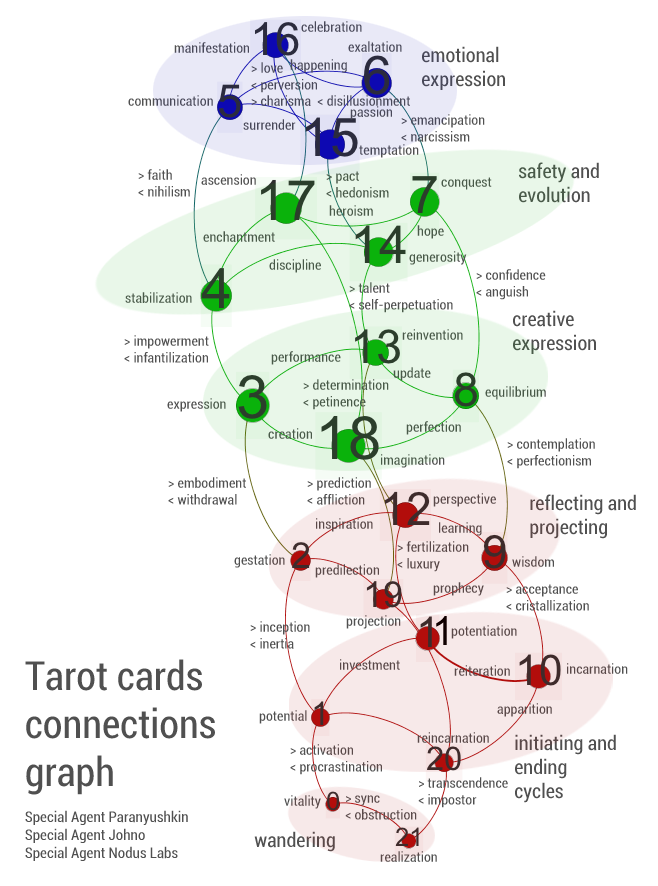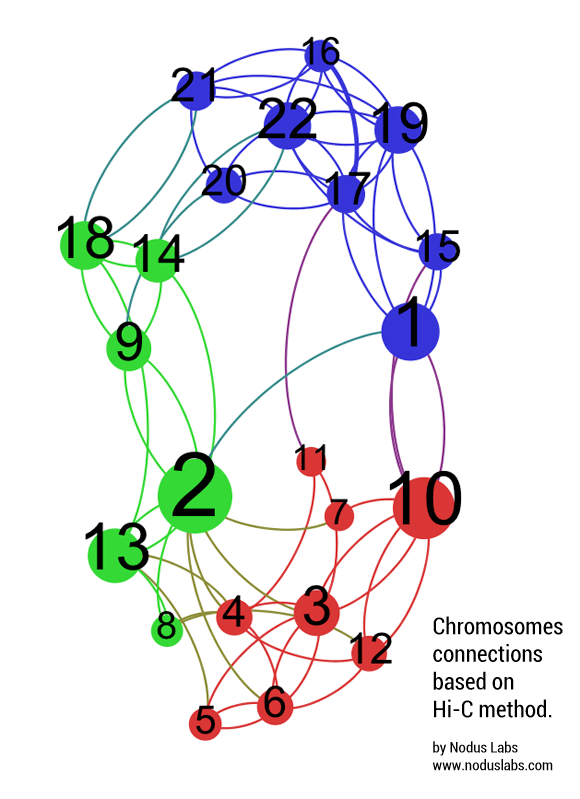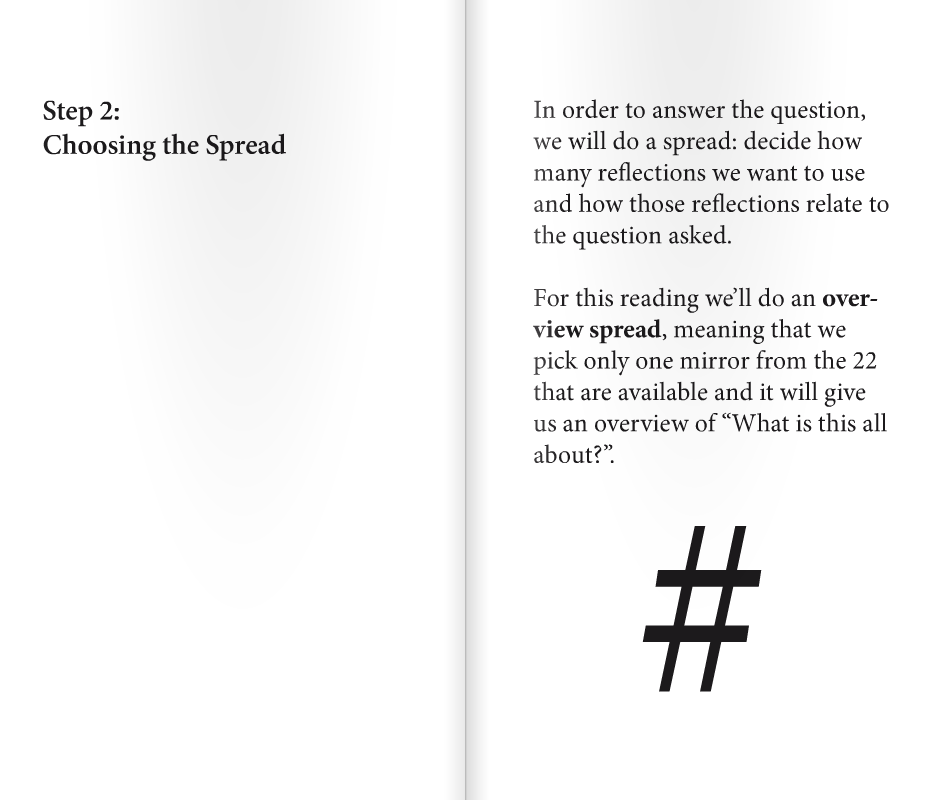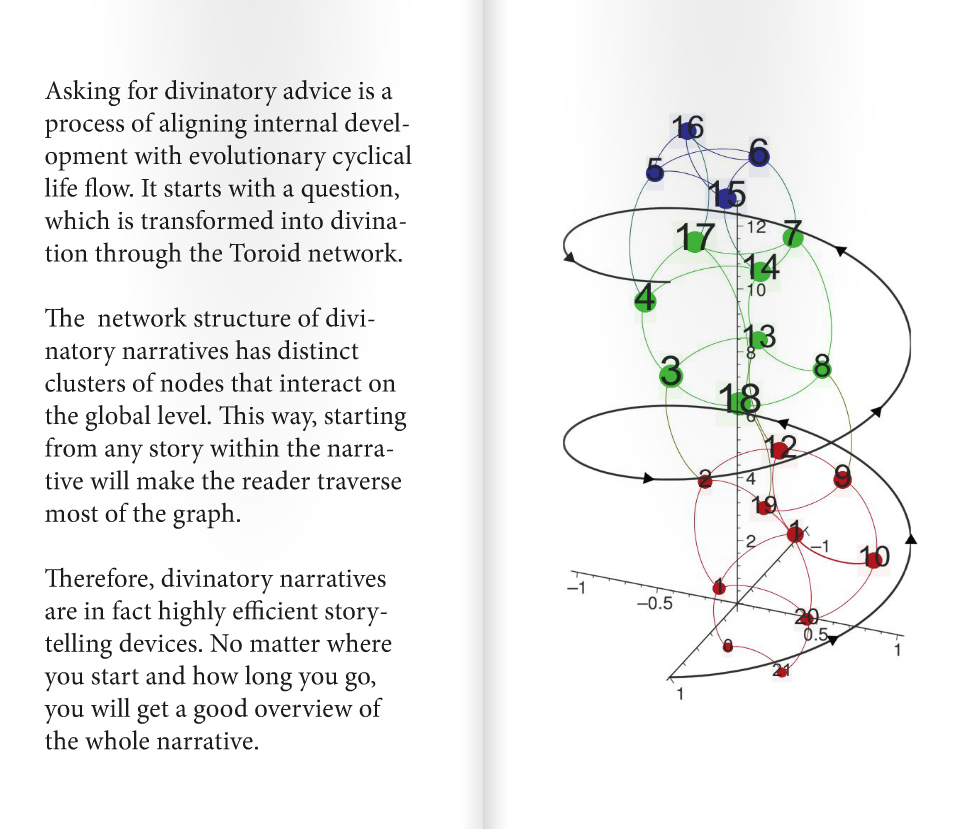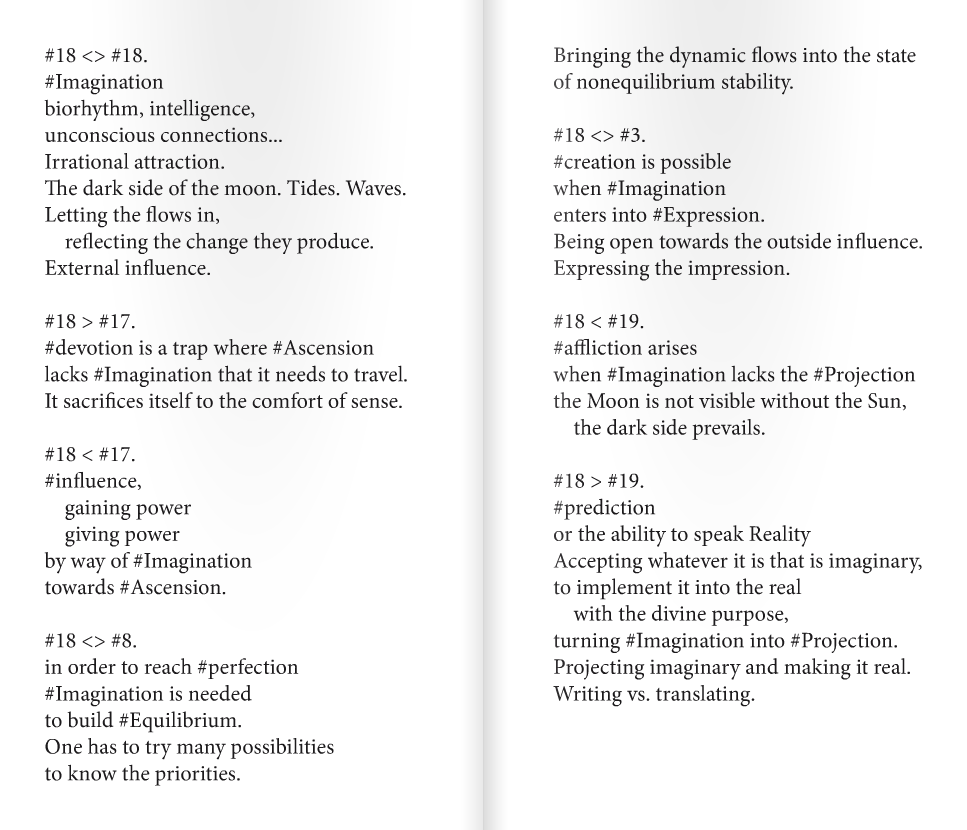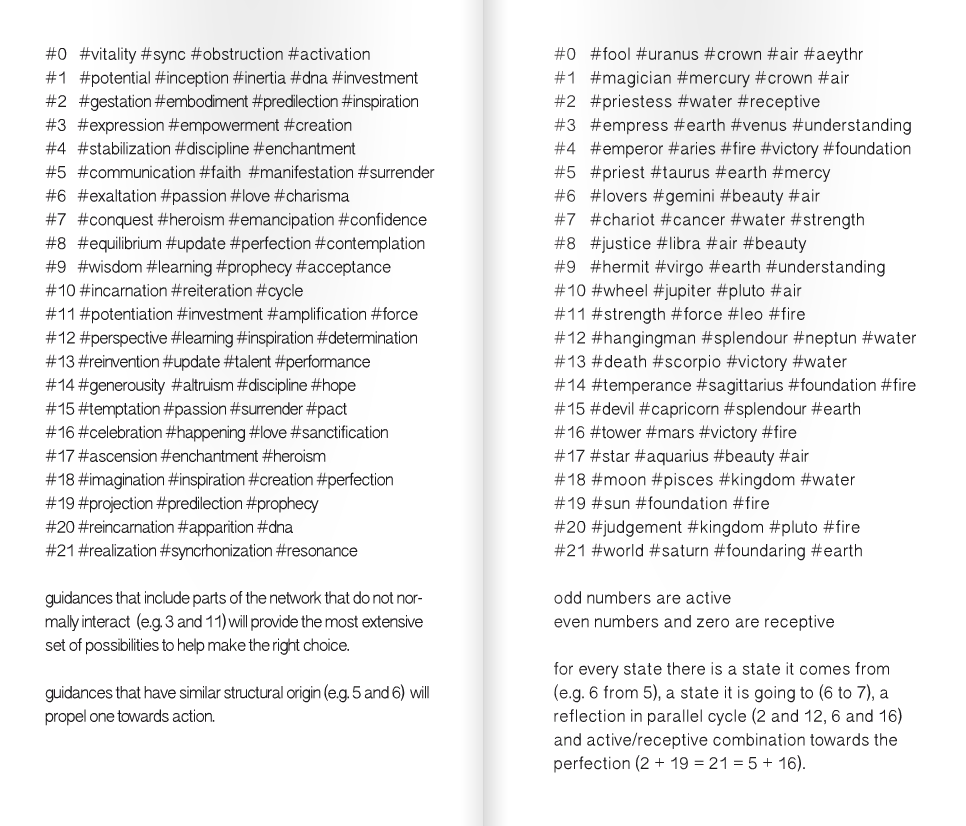Divinatorium
Divinatorium is a methodology for divinatory guidance and a recommendation algorithm developed by Dmitry Paranyushkin and Colin Johnco. It can be programmed into AI recommender systems or used in everyday practice as a tool for personal, artistic, or professional guidance.
While we implemented some of the elements of Divinatorium into InfraNodus thinking tool, we also created a website and a deck of abstract Divinatorium cards with a manual, so that this work could also be experienced using the more traditional, analogue devices.
Unlike most recommender systems, Divinatorium functions on the basis of complementarity rather than similarity. Instead of recommending the most obvious choice (“if you like this, then you’ll also like that”), it is aimed at opening up new possibilities and bridging the gaps between what is already known and what is still left to discover. In other words, relevant and surprising.
When developing this project, we researched multiple divination systems: from Tarot to I Ching. What we found in common was a very specific kind of connectivity between the elements. The discourse is usually comprised of discrete elements, which are distinct but also reference each other. The network of references, when represented as a network graph, is comprised of distinct interconnected clusters that are also globally connected: reminiscent of small-world network topology. The resulting network, therefore, can be very easily traversed in only a few steps. No matter where one begins to read this discourse, they will always touch upon similar related topics in just a few iterations.
Therefore, divination systems can be said to be hyper-efficient narrative devices that can take the reader through diverse parts of discourse in the shortest time in a non-linear fashion.
Interestingly, it looks like a DNA structure and also — a network graph of connections between the chromosomes, which is an amazing coincidence (or not), considering that most of those systems were developed several hundreds of years ago. It’s like the monks and the ancient philosophers who worked on those systems managed to touch the very essence of the structure of life.
While the content of divination systems is full of specific symbology and myths, the general concepts that it relates to are much more universal. During the creation of the Divinatorium, we abstracted the main notions that are typically present in most divination systems in order to make the content universally acceptable. For the first iteration of the project, we left 22 elements (reflecting the 22 Major Arcana cards in Tarot), but the framework we developed, however, can be filled with any content and use fewer or more elements.
Read more about the methodology we use in Divinatory Recommender Systems article, try the online Divinatorium.
Date
January 31, 2016
Objective
To create a divinatory recommendation system based on holistic approach and serendipity rather than local similarities.
Active During
2014 - present
Production
Dmitry Paranyushkin, Colin Johnco, produced by Special Agency and Nodus Labs
Related Projects
Card Deck
Try it Online
Category
Active, Book, Digital, Discourse, Event, Featured, Framework, Methodology, Practice, Publishing, System, Tool

